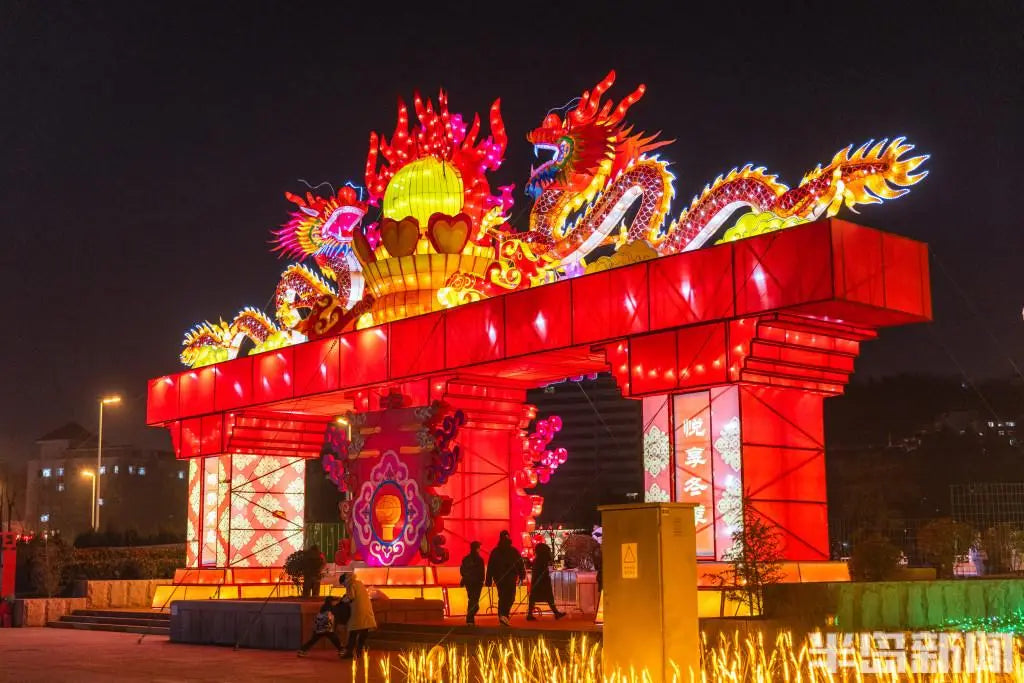
The Origin and Tradition of the Lantern Festival
Share
The Lantern Festival, celebrated on the 15th day of the first lunar month, is a vibrant and cherished tradition in Chinese culture that marks the culmination of the Chinese New Year festivities. This festival is not only a time for family reunions and joyous celebrations but also a reflection of ancient customs and beliefs that have been passed down through generations. The Lantern Festival, known as Yuan Xiao Jie, is a tapestry of history, symbolism, and folklore that continues to illuminate the hearts of people in China and around the world.
At the heart of the Lantern Festival lies its ancient origins, tracing back to the Han Dynasty (206 BCE – 220 CE). It was during this era that the festival began to take shape, initially as a ceremonial practice involving the worship of Taiyi, the God of Heaven, who controlled the destiny of the human world. Emperor Wu of Han ordered splendid ceremonies to pray for good fortune and favorable weather. Over time, the practice evolved, especially during the Tang Dynasty (618 – 907 CE), when Buddhism flourished in China. Monks would light lanterns to honor Buddha on this auspicious night, and the tradition gradually permeated throughout society, leading to the widespread lantern lighting customs we see today.

The symbolic significance of the Lantern Festival is deeply rooted in themes of unity, prosperity, and the ushering in of light and warmth after the cold winter months. Lighting lanterns symbolizes the hope for a bright future and the expression of people's best wishes for their families and the country. The lanterns, often adorned with riddles, serve as vessels of wisdom and knowledge, inviting participants to engage in the age-old tradition of lantern riddle guessing. This activity not only entertains but also fosters social interaction and mental agility, embodying the festival's spirit of harmony and enlightenment.

One of the most enchanting aspects of the Lantern Festival is the plethora of legends and myths that enrich its celebration. A popular legend tells the story of a celestial bird that was accidentally killed by a hunter. The Jade Emperor, upon learning of his favorite bird's death, planned to incinerate the village as punishment. However, the emperor's daughter warned the villagers, who then lit lanterns throughout the village to mimic a massive fire, deceiving the Jade Emperor and sparing the village from destruction. This tale underscores the themes of cleverness and unity, highlighting why lantern lighting is a central element of the festival.

Another beloved story is that of Tangyuan, the sweet glutinous rice balls enjoyed during the Lantern Festival. According to legend, there was a maid named Yuan Xiao who longed to reunite with her family. A wise man devised a plan where the Emperor was told that the God of Fire planned to burn down the city. To appease the deity, the Emperor ordered everyone to prepare Tangyuan and light lanterns, creating a festive atmosphere. Yuan Xiao was reunited with her family amidst the celebrations, and since then, eating Tangyuan has become a symbol of familial harmony and completeness during the festival.

In addition to these tales, the Lantern Festival is also associated with romantic connotations, often considered the Chinese equivalent of Valentine's Day. In ancient times, it was one of the few occasions when young women could step outside under the full moon, allowing for social interactions and the blossoming of love. The glow of the lanterns provided the perfect backdrop for love stories, further enriching the festival's cultural tapestry.

The Lantern Festival today remains a vibrant and integral part of Chinese culture, embodying centuries-old traditions and values. Cities and communities come alive with elaborate lantern displays, featuring themes from folklore, history, and modern society. Traditional performances such as the lion dance and dragon dance add to the festive atmosphere, symbolizing power, dignity, and auspiciousness. As people gaze upon the illuminated skies and share Tangyuan with loved ones, the Lantern Festival continues to be a beacon of cultural heritage, illuminating the enduring spirit of togetherness and hope for the future.

In essence, the Lantern Festival is more than just a celebration; it is a profound expression of China's rich history and cultural identity. From its origins in the Han Dynasty to its modern-day festivities, the festival encapsulates the nation's values of unity, wisdom, and harmony. The stories and traditions associated with the Lantern Festival not only entertain but also educate, passing down important cultural narratives to future generations. As the lanterns light up the night sky, they remind us of the enduring human desire for connection, understanding, and a brighter tomorrow.




